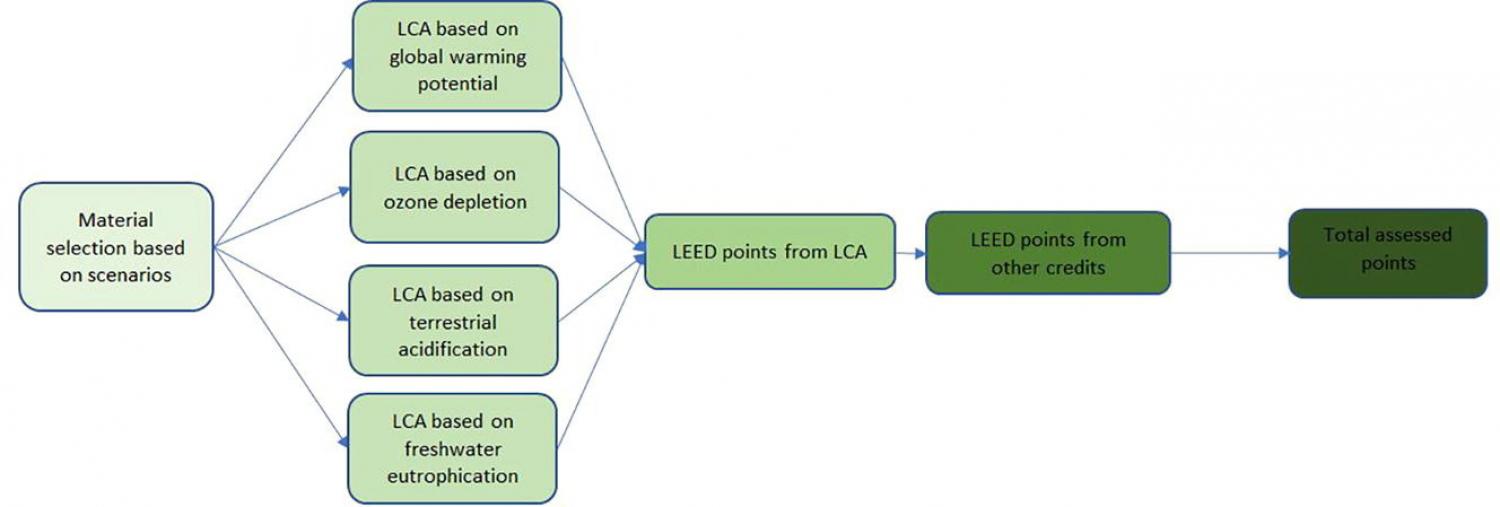
The construction and use of buildings consume a significant proportion of global energy and natural resources. Leadership in Energy and Environmental Design (LEED) is arguably the most international green building certification system and attempts to take actions to limit energy use of buildings and construct them sustainably. While there has been a wide range of research mainly focused on energy use and emission production during the operation phase of LEED-certified buildings, research on embodied emissions is rare. The aim of this study is to evaluate the efficiency of LEED regarding initial (pre-use) embodied emissions using life cycle assessment (LCA). The study comprised several steps using a designed model. In the first step, three optional building material scenarios were defined (optimized concrete, hybrid concrete-wood, and wooden buildings) in addition to the base case concrete building located in Iceland. Second, an LCA was conducted for each scenario. Finally, the number of LEED points and the level of LEED certification was assessed for all studied scenarios. In addition, a comparison regarding embodied emissions consideration between LEED and Building Research Establishment Environmental Assessment Method (BREEAM) as mostly used green certificate was conducted in the discussion section. The LCA showed the lowest environmental impact for the wooden building followed by the hybrid concrete-wood building. In the LEED framework, wooden and hybrid scenarios obtained 14 and 8 points that were related to material selection. Among these points, only 3 (out of a total of 110 available points) were directly accredited to embodied emissions. The study recommends that the green building certificates increase the weight of sustainable construction materials since the significance of embodied emissions is substantially growing along with the current carbon neutrality goals. As most of the materials for building construction are imported into Iceland, this study is useful for locations similar to Iceland, while overall it is beneficial for the whole world regarding climate change mitigation.
